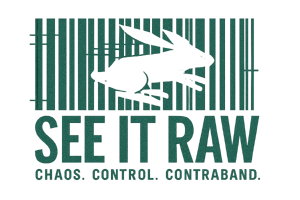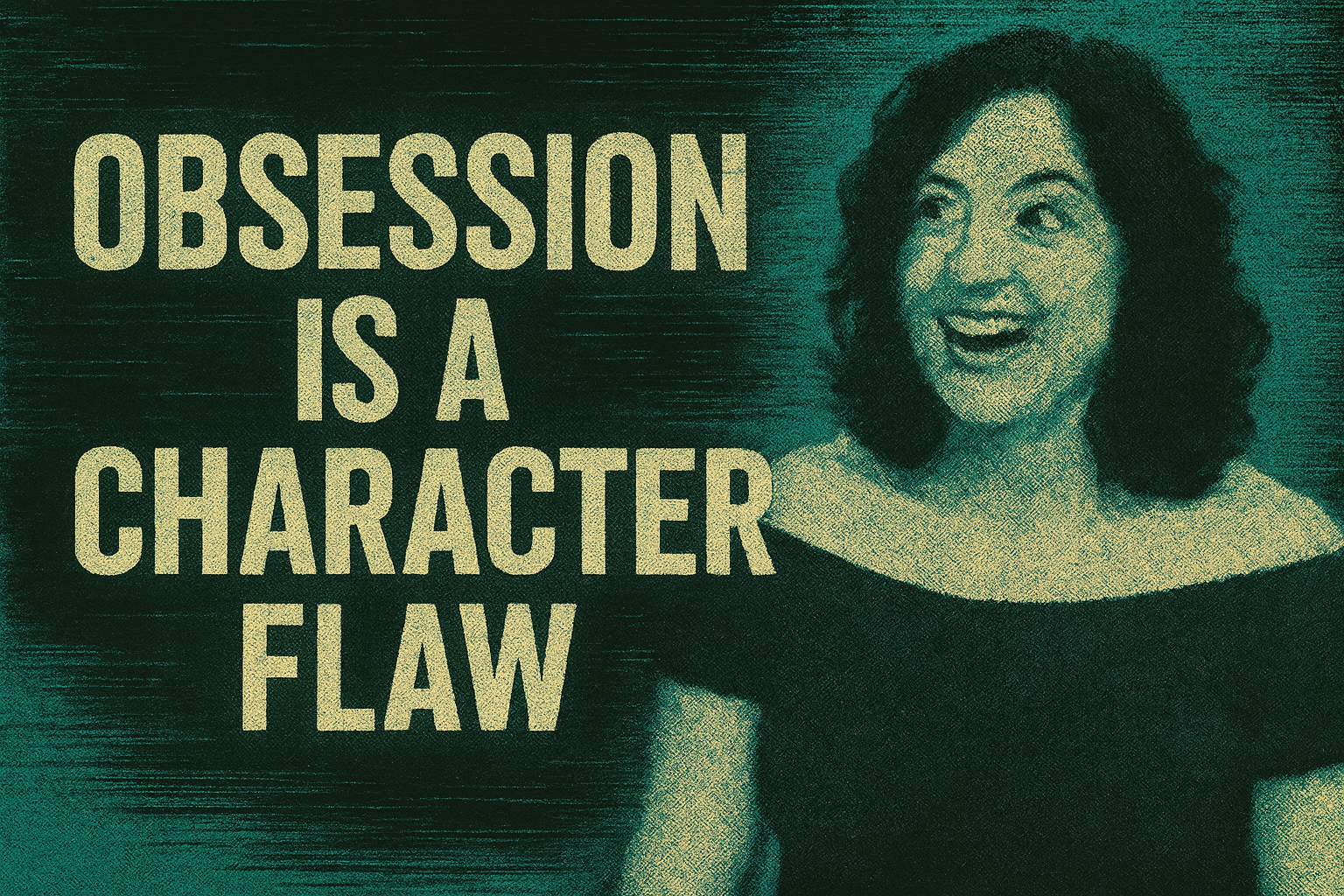Because nothing screams stability like being awake in the pitch-black hours, brain running a thousand miles an hour thanks to ADHD, hammering out thoughts about obsession while nursing caffeine jitters from a drink I swore I wouldn’t touch past midnight.
Here’s the deal: obsession gets dressed up as drive when society wants to market it. In reality, it’s just an itch you can’t scratch without looking feral. Writers know this better than anyone. We are professional obsessives: plot obsessives, sentence obsessives, self-flagellating obsessives. And we disguise it by calling it “craft.”
The real fascination starts when the obsession isn’t about the work. It shows up when it latches onto a person. So many fit this type but my favorite is The Look-At-Me Boss. The boss who treats every meeting like a personal stage. She thrives on the spotlight like it’s oxygen, and the more she craves it, the more obvious the patterns become. Most people see the performance. I track the mechanics. The forced jokes during serious discussions, the laugh that always pulls focus, the way she engineers social moments to keep everyone orbiting her.
Obsession in others is like a flare for me. Most people glance and move on. I lock in. It’s the narrative equivalent of staring at the sun. You’re told not to, but I’ll squint harder just to chart the details.
From a craft perspective, obsession is both a gift and a grenade. A character obsessed is a character alive on the page. But the moment you realize you’re lifting real-life fixation into a character flaw, it’s like leaving fingerprints all over the murder weapon. Everyone can trace it back to you.
I’ve done this more times than I’ll admit. That villain’s controlling? Definitely a recycled boss. That love interest with devotion wrapped in danger? Born from someone who lived rent-free in my head. Not fictional, not available, but unforgettable.
The RAW Empire rulebook would phrase it like this: Obsession is consumption. Consumption rots. Rotted minds do not serve the Order. Translation? Keep your fixations in the draft folder, because public-facing you is supposed to look disciplined, composed, professional. Society runs on the illusion of balance, even though everyone’s one skipped lunch away from spiraling.
Obsession erodes boundaries you thought you had. It eats time, it wrecks focus, it’s the mosquito in your skull. ADHD makes this worse. My brain doesn’t dabble; it cannonballs. I can crank out 30k words in three days when obsession cosplays as productivity. Or I can spend six hours cataloging the exact moment The Boss gets bored versus the exact rhythm before she lashes out. Useless superpower, or the best one, depending on how you spin it.
“Write what you know,” they say. Well, I know obsession intimately. I know how it feels sharp and hollow all at once. I know how it tricks you into thinking you’re carving clarity when you’re really tunneling deeper into nonsense.
The irony? My career is built on selling obsession. Readers don’t want balanced characters. They want the desperate, the fixated, the ones who spiral. The rival who can’t stop scheming. The colleague who pushes every limit. The heroine who burns her world down for the one thing she won’t release. Readers inhale it because it’s safe in fiction. Fiction is the containment field for obsession.
Outside the book, people miss it. They don’t notice the hesitation before an answer, the three-second pause that signals disdain, the way a pen becomes a weapon before a word does. I notice. Always. Which makes me the freak, or the writer, depending on your perspective.
So let’s lay this out:
Obsession in fiction = dynamic, dramatic, marketable.
Obsession in real life = study material, behavioral blueprint, story fuel.
Obsession in a writer’s diary = confession booth nobody asked for.
The RAW Empire spin? To obsess is to decay. To decay is to betray the system. Order requires clean lines, not tangled wires. Of course, RAW would flash that across glitch screens while half the population secretly obsesses anyway. Because that’s the real joke: control thrives on suppression, and suppression breeds fixation.
That’s the crux: obsession isn’t a flaw when you know how to use it. Point it at the boss, the crush, the stranger on the subway, you get insight. Point it at the work, the book, the empire you’re building, you get results. Suddenly it’s ambition. Suddenly it’s marketable. Suddenly you’re praised for being relentless.
The survival trick? Disguise obsession as discipline. Channel it. Let everyone think you’re just “dedicated” while you’re actually spiraling over chapter fourteen until your wrists ache. That way obsession feeds the empire instead of burning it down.

